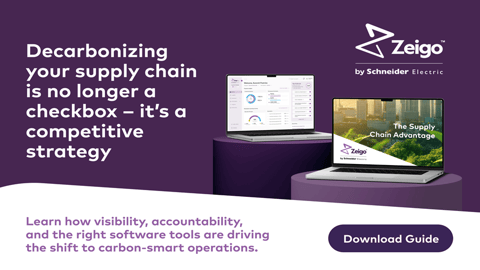Collaboration Is Critical for Chris Fox As Hanesbrands’ 1st Chief Sustainability Officer
Hanesbrands has signaled its commitment to sustainability with the appointment of Chris Fox as its first chief sustainably officer.
Previously VP of corporate social responsibility, and with the company for over two decades, Fox will now report to Mike Faircloth, group president of global supply chain, IT and e-commerce.
This shift from reporting into general counsel to reporting into the business reflects Hanesbrands’ recognition of the value of sustainable operations, as this becomes more of a business driver and of greater interest to both its customer base and consumers, Fox told CGT.
The No. 77 consumer goods company has set a series of 10-year global sustainability goals modeled after the United Nations’ Sustainable Development Goals (SDGs). As part of them, the company intends to eliminate all single-use plastics and reduce packaging weight by 25%, and it’s developed a new website with more reporting and transparency on its sourcing and diversity and inclusion programs.
“There's a recognition with our senior team that these are important issues. They're important to a range of stakeholders, from our own employees, to the consumer, to our retail partners, to investors, to the NGO community,” said Fox. “When we were building that website, we were really focusing on meeting the needs and addressing the questions and the information that those very different sets of stakeholders are looking for.”
“It's clearly going to be an important part of how we think as a company, and how we act going forward,” he added.
CGT talked with the exec about the company’s goals and the technology behind them.
CGT: Can you talk a little bit about the tech that's facilitating these new sustainability initiatives?
Fox: One of the things that we don't currently have — that we really recognize we need to manage a broad set of goals — is a much better technology platform. And they exist out there, Schneider Electric being one of them. We're looking at a number of different tools that in the relatively near future we can bring on board to help us manage everything, from our people metrics to our environmental and energy metrics and water metrics, down to how we are managing our packaging reduction goal.
So we’re literally right on the cusp right now of trying to identify that right platform, but we definitely recognize we need a platform like that.
CGT: So, similarly to how your supply chain is built in-house, is a lot of your tech infrastructure also in-house?
Fox: I think that's a good description. I think [there are] some homegrown data tracking tools on things like SharePoint, all the way down to the very complicated spreadsheets. I think the shortest way to describe that is kind of a mishmash of internal tracking and data management mechanisms right now.
But as this whole space has gotten more complex, our goals have gotten more complex. I think there's a pretty strong recognition that we need a more sophisticated platform to help us manage it effectively going forward.
CGT: Can you talk about how you leverage data and analytics in your sustainability initiatives?
Fox: I’m going to point to two main examples: One is energy. And we have used in-house tools to track our energy spend and our energy use for really going back to 2007, 2008. So we've had a very close, very granular view of our energy use and energy spend, with a major initial goal of trying to figure out how we can cut that energy use, quite frankly, to save money, and over the years, have cut our overall energy use by about 25%.
And what that roughly has translated into is a 25% dollar savings off of the 2007 baseline. So we've saved hundreds of millions of dollars by really focusing on energy use and energy data.
Completely different example: We have a third-party tool called ICIX that we use to manage our entire labor compliance portfolio in our factory compliance auditing program. And if you'll go to the website and look in the transparency section, you'll see the data we have tracked and are reporting against now on both the environmental side, and the social and labor compliance side.
CGT: A lot of your new initiatives are focusing on single-use plastics. Can you share more about the technology surrounding that?
Fox: Last spring, as we were we were finalizing these goals and launching the work on this new website, we also launched what we're calling a Global Sustainability Consortium. And that's about 70 people around the world embedded in all of our businesses and across a range of functions that will help us drive the activity needed to hit these goals in 10 years.
We also have that subdivided into three main pillars: people, product and planet. And within product are our packaging goals, and there is going to be the structure of a global packaging team focused on packaging, and focusing on how as a global enterprise we can get all of our global businesses rowing in the same direction on a goal like single-use plastics.
So we haven't identified much of the technology yet, but what we have done, which I think really is that first big step, is organize the organization globally so that we are attacking a problem like this with very much a global representation of our internal businesses.
So we don't want to go about managing these issues and attacking these goals in the silo of an Australian business, or a European business or a U.S. business. We're attacking these issues, like packaging and single-use plastics, as one global enterprise.
CGT: On that note, can you share your thoughts on the value of retail collaborations with regard to sustainability?
Fox: We've made a lot of progress over the years and have collaborated very heavily, especially with my background, have focused as much on the labor compliance space over the years. I think collaborations are critical to attack the people issues. Collaborations are clearly critical in attacking environmental issues, and I think packaging being the best example of that.
To really move the needle on packaging — especially eliminating plastics and other packaging inputs that we really want to move away from — we've got to be partnered with our retailers. Oftentimes we are focused on what their needs are, and how they want to merchandise the products and how they want to set their own floors. And so to really move the needle, it's going to take a lot of collaborative work between us as a brand and a manufacturer, and [with] our retail partners working together to get to the right place.
CGT: What are you hearing from your retail partners on this front? Do they seem more open to collaboration?
Fox: I think they do. I was literally on a Walmart packaging sustainability webinar yesterday. I think they recognize that we've got to work together in this space, because there are a lot of competing demands.
To figure out single-use plastics and how we really rethink packaging, we all need to be thinking of working all together.
CGT: What do you think are some of the biggest roadblocks to progress for sustainability right now?
Fox: Not collaborating. Honestly, whether it's a retail or a brand or manufacturer, and of those three to four main stakeholders, I think if we all try to tackle this alone that we're just going to literally run into each other.
CGT: How has the pandemic adjusted Hanesbrands’ sustainability goals?
Fox: I don't think really at all. They’re 10-year goals. We hope we’re through this as soon as we can, and we'll manage through the relative short term. Hopefully, we're coming out on the end of this in the next six months to a year.
But the bottom line is, they really haven't changed our thought process in any significant way. We really are looking out to the future and looking to the long term, and a lot of these are issues that are not going to be tackled overnight. They're long-term systemic changes that need to be made on a five- to 10-year run. So I don't think that it's really impacted our long-term thinking or emphasis on these issues at all.







